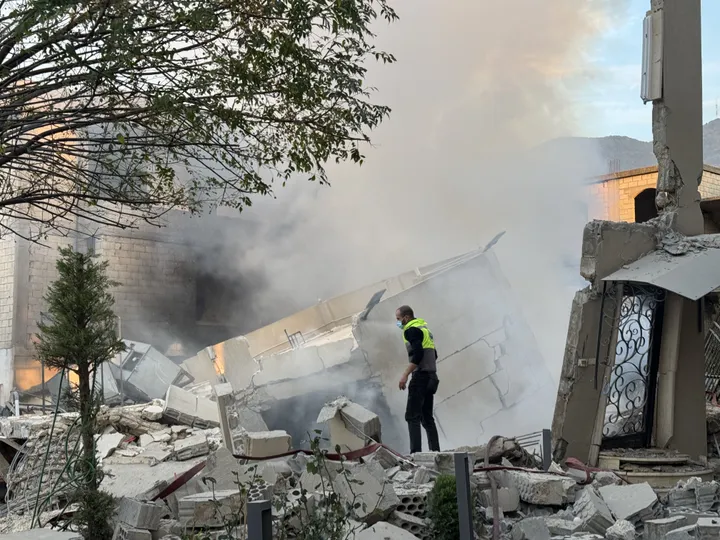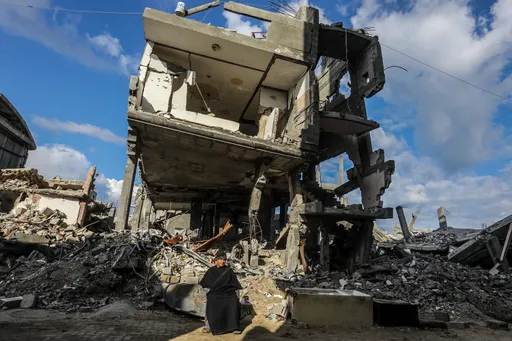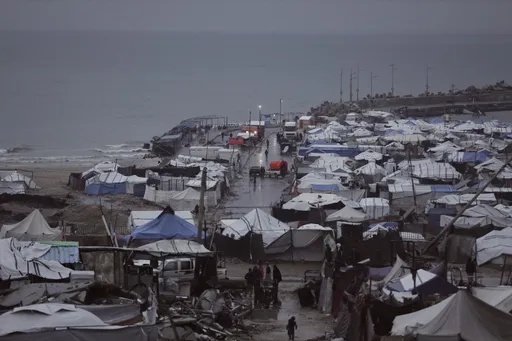The United States could soon offer to put armed sailors and Marines on commercial ships travelling through the Gulf's Strait of Hormuz, two US officials have said, amid alleged attempts by Iran to hijack ships in international waters.
The Pentagon last month sent additional F-35 and F-16 fighter jets along with a warship to the Middle East in a bid to monitor key waterways in the region following Iran's seizure and harassment of commercial shipping vessels.
After taking a commercial tanker last month, Tehran said it had an order from an Iranian court to seize a tanker in Gulf waters.
The Strait of Hormuz is between Iran and Oman.
In May, the White House announced that the Biden administration would be making moves in the region, but at the time did not say what they would include.
One official, speaking on the condition of anonymity, said the military had already been training some Marines in the Middle East to be on the vessels.
But the official said it would ultimately be up to commercial vessels whether to request troops for parts of a journey that were particularly dangerous in the Strait of Hormuz.
In July, the US Navy said it had intervened to prevent Iran from seizing two commercial tankers in the Gulf of Oman.
Renewed tensions
Since 2019, there have been a series of attacks on ships in strategic Gulf waters at times of tension between the United States and Iran.
About a fifth of the world's crude oil and oil products passes through the Strait of Hormuz.
The renewed hostilities come as Iran now enriches uranium closer than ever to weapons-grade levels after the collapse of its 2015 nuclear deal.
International inspectors also believe it has enough enriched uranium for "several" nuclear bombs if it chooses to build them.
Iran maintains its program is for peaceful purposes, and US intelligence agencies assess Tehran is not pursuing an atomic bomb.
With the 2015 Iran nuclear deal effectively dead, Iran's relations with the West have deteriorated over the last year, leading Washington and its allies to look for ways to de-escalate tensions and a way to revive some kind of nuclear limits.
























